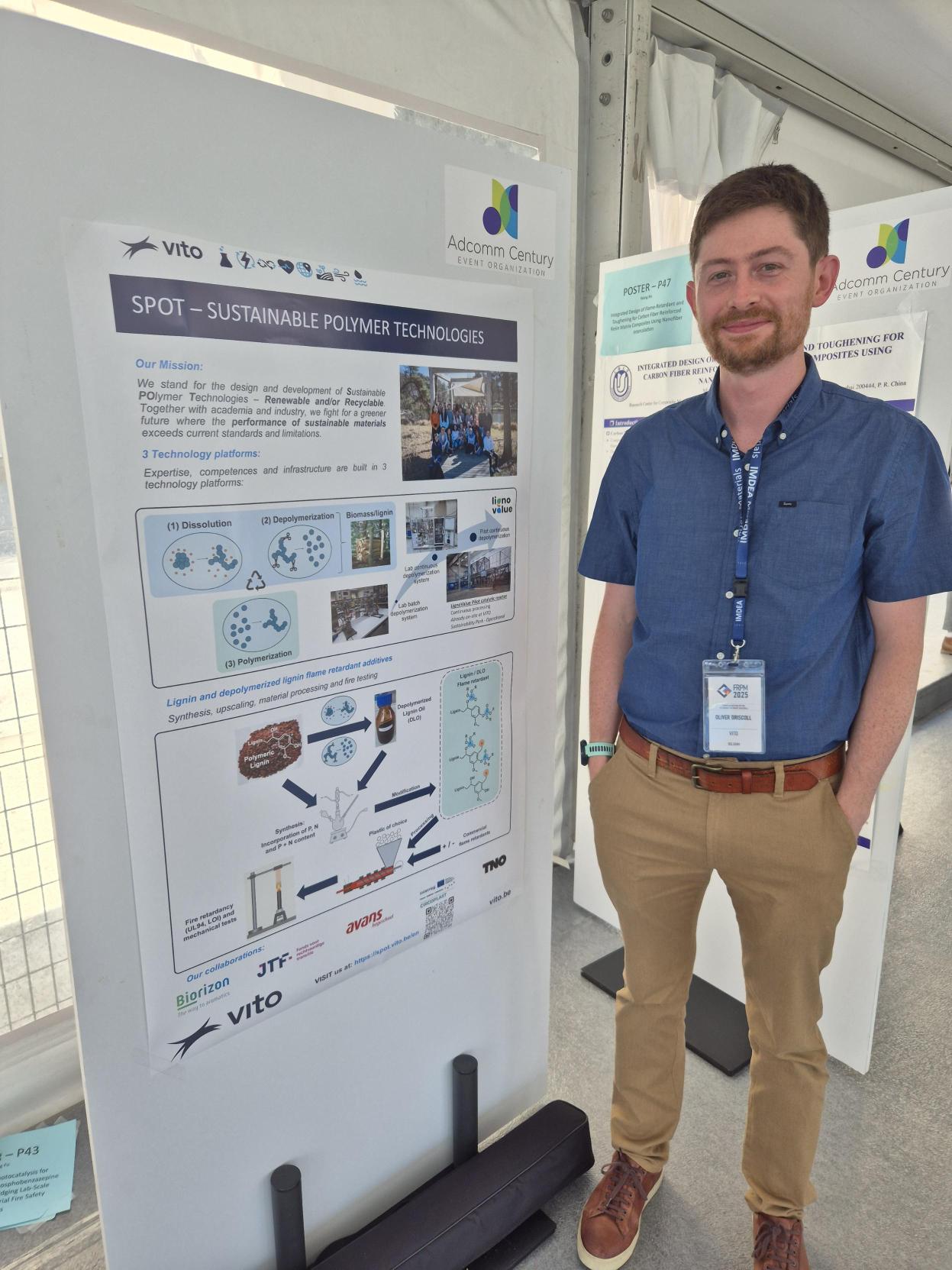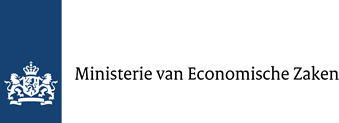News
18-07-2025
Advancing biobased fire safety at the 20th European Meeting on Fire Retardant Polymeric Materials (FRPM25)
Biorizon co-initiator VITO presented its latest research on biobased, non-halogenated flame retardants derived from depolymerized lignin at FRPM25 – the 20th European Meeting on Fire Retardant Polymeric Materials
 The work was shared through a poster presentation, showcasing how lignin fractions can be valorised into flame-retardant building blocks for sustainable polymer systems. This approach not only avoids the use of halogens, but also supports the transition toward safer, more circular material formulations.
The work was shared through a poster presentation, showcasing how lignin fractions can be valorised into flame-retardant building blocks for sustainable polymer systems. This approach not only avoids the use of halogens, but also supports the transition toward safer, more circular material formulations.
This research is part of our broader efforts in the Just Transition Fund project - B4: Better Biobased Building Blocks and the Interreg France-Walloon-Flanders project Circoplast, where we explore new routes for climate-resilient material innovations with industrial impact.
Focus highlights:
- Use of depolymerized lignin as a renewable flame-retardant feedstock
- Halogen-free formulations for improved fire safety and sustainability
- Circularity potential through integration in recyclable or bio-based materials
The incorporation of lignin-derived fractions increases the share of renewable carbon in flame retardant additives, while maintaining strong performance and compatibility with polymer matrices. This work is supported by VITO’s PILLAR II and LignoValue pilot facilities, which provide a reliable source of lignin-based bio-aromatics.
Read more: https://www.sciencedirect.com/science/article/abs/pii/S1385894724079658
FRPM25 continues to be a key platform for knowledge exchange in the field of flame retardant innovation, and we’re glad to be part of it!
Feel interested to discuss on this topic – contact Maarten Rubens (maarten.rubens@vito.be)
The B4 project is co-funded by the European Union in light of the Just Transition Fund (JTF), Ministry of Economic Affairs and Climate Policy, Ministry of Social Affairs and Employment and the Province of North-Brabant.
The Circoplast project is funded by the InterregVI France-Wallonie-Vlaanderen program, and co-financed by VLAIO, Flanders Innovation and Entrepreneurship and the Walloon Region.






